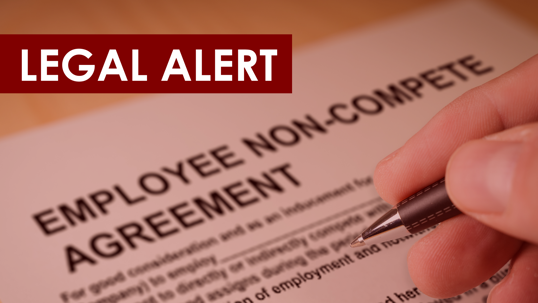

On April 23, 2024, the Federal Trade Commission announced the issuance of a final Noncompete Clause Rule, which generally bans non-competes with workers. The rule is scheduled to become effective 120 days after publication in the Federal Register, if not delayed or derailed by legal challenges. However, since the Rule was announced, the US Chamber of Commerce and other business associations filed a lawsuit in federal district court in Texas seeking a declaration that the FTC’s final rule is unlawful and an injunction against its enforcement. Ryan, LLC, a global tax services firm that uses non-competes with its shareholder principals and certain other employees with access to particularly sensitive business information, filed a similar challenge in the Northern District of Texas.
Applies to all entities under FTC authority.
The Rule applies to all entities under the FTC’s authority who enter into or attempts to enter into, a non-compete clause; enforces or attempts to enforce a non-compete clause; or represents that a worker is subject to a non-compete clause.
Workers defined.
The Rule broadly defines workers to include employees, independent contractors, externs, interns, volunteers, and apprentices, sole proprietors who provides a service to a person; and persons working for a franchisee or franchisor.
Senior executive exemption.
Allows the enforcement of non-compete agreements with senior executives that were entered into before the effective date of the rule but prohibits employers from entering into new non-competes with senior executives after the rule’s effective date. A senior executive is defined as a worker in a policy-making position who earned at least $151,164 (annualized) in the preceding year.
Non-compete clauses defined.
For purposes of this rule non-compete clauses are terms or conditions of employment prohibiting a worker from, penalizing a worker for, or functioning to prevent a worker from seeking or accepting work with a second employer after the first employment relationship ends or operating a new business after the initial employment relationship ends.
A non-compete may be written or oral and be a contractual term or workplace policy.
Notification requirements.
Covered entities must notify workers who are parties to a non-compete agreement that is prohibited by this rule that the non-compete cannot and will not be enforced. Model language for the notification is required.
Exceptions.
The Rule does not apply to non-competes entered in connection with a bona fide sale of business; or causes of action regarding an existing non-compete that arose before the rule’s effective date.
State law is not preempted, except to the extent state law allows conduct that is considered a method of unfair competition under the final rule.
Caution.
This Rule does not eliminate all risk of hiring workers with existing non-compete clauses, since employers may still enforce other contract terms such as non-solicitation and non-disclosure clauses, trade secrets, or other legal theories which may protect employer interests.
For more information on non-competes and how this new ruling may affect your business contact Goosmann Law Firm.